North Carolina War Between the States Sesquicentennial
Fort Sumter and Coercion
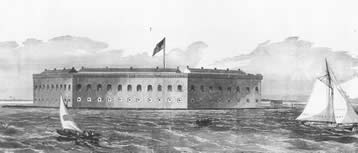
Fort Sumter was seen by many North Carolina Unionists as something to be evacuated
if it would avert armed conflict between Americans.They believed that a cooling-off period was necessary
to allow seceded States the opportunity for further reflection on the value of the Union; it would force the
incoming Republican party leadership to solve the crisis with compromise; and it would avoid the
secession of Virginia, Tennessee and North Carolina.
Lincoln feared peaceful compromise with the South as it would put the disparate factions of the Republican party
at odds with each other and perhaps dissolve it; his inaction and avoidance of compromise before his inauguration
in March 1861 would seal the fate of the Founders' Constitution and Union. Lincoln put party allegiance above
Constitutional principles and love of country, the mark of a mere politician; Jefferson Davis put Constitution
and country above party faction, the mark of an American statesman.
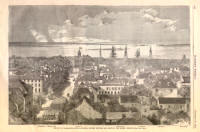
Lincoln’s Responsibility for War:
“The view that the South was to blame for the war has been challenged by [historian] Charles Ramsdell,
who maintained that the real cause of hostilities was Lincoln’s sending relief expedition to Fort Sumter.
Lincoln had done so, said Ramsdell, in the full expectation that war would result, because only be
provoking the Confederates into firing the first shot could he hope to unify the Radical and Conservative
wings of his [Republican] party and attract Northern Democrats to the
cause of preserving the Union by force.
A new dimension was added to the subject by Kenneth Stampp, who carefully analyzed
what the North feared it would lose by acquiescing in an independent Confederacy, and how
those fears were translated into powerful political pressure on Lincoln to do something decisive.
He conceded that Lincoln….was willing to accept war rather than Southern Independence.
As for the North in general, Stampp concluded:
“Yankees went to war animated by the high ideals of the nineteenth century middle-classes, but
they waged their war in the usual spirit of vengeance….But what the Yankees achieved –
for their generation at least – was a triumph not of middle-class ideals but of middle-class vices.
The most striking products of their crusade were the shoddy aristocracy of the North and the
ragged children of the South. Among the masses of Americans
there were no victors, only the vanquished.”
(North Against South, Ludwell H. Johnson, pp. 279-280)
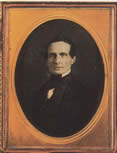
Senator Jefferson Davis Pleads for Peace, 10 January 1861:
“Senator [Jefferson] Davis would speak for the South. He was still Senator, still its spokesman. Mississippi
had not yet officially notified him of her action yesterday.
"What, Senators, today is the condition of the country? From every quarter of it comes the wailing
cry of patriotism pleading for the preservation of the great inheritance we derived from our fathers. Tears
are now trickling down the stern face of man; and those who have bled for the flag of their country, and
are willing now to die for it, stand powerless before the plea that the [Republican] party about to come
into power laid down a platform, and that come what will, though ruin stare us in the face, consistency
must be adhered to, even though the Government be lost.
Why should not the garrison at Fort Sumter be withdrawn, if it would ease the tension and save bloodshed?
And as for the flag:
Is there any point of pride which prevents us from withdrawing that garrison? I have heard it said by a gallant
gentleman that the great objection was an unwillingness to lower the flag. To lower the flag!
Can there, then, be a point of pride so sacred a soil as this, where the blood of the fathers cries to Heaven
against civil war? Can there be a point of pride against laying upon the sacred soil today the flag for which
our fathers died? My pride, Senators, is different.
My pride is that the flag shall not set between contending brothers; and that, when it shall no longer be
the common flag of the country, it shall be folded up and laid away like a vesture no longer used; that it
shall be kept as a scared memento of the past, to which each of us can make a pilgrimage, and remember
the glorious days in which we were born.
I have striven to avert that catastrophe which now impends over the country, unsuccessfully, and I regret it.
If you desire at this last moment to avert civil war, so be it; it is better so.
If you will not have it thus; if the pride of power, if in contempt of reason and reliance on force, you say
we shall not go, but shall remain as subjects to you, gentlemen of the North, a war is to be inaugurated
the like of which men have not seen.
Is there wisdom, is there patriotism in the land? If so, easy must be the solution to the question.
If not, then Mississippi’s gallant sons will stand like a wall of fire around their State….”
(Congress and the Civil War, Edward Boykin, McBride Company, 1955, pp. 269-271)
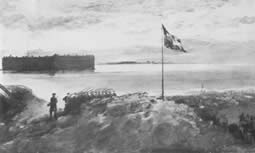
Fort Sumter Ceded to the United States
"On March 24, 1794, the US Congress passed an act to provide for the defense of certain ports and harbors
of the United States. The sites of forts, arsenals, navy yards and other public property of the federal government
were ceded or assigned by the States within whose limits they were, and subject to the condition, either expressed
or implied, that they should be used solely and exclusively for the purpose for which they were granted.
The ultimate ownership of the soil, or eminent domain, remains with the people of the State in
which it lies, by virtue of their sovereignty. South Carolina, in 1805 by legislative enactment, ceded to the
United States in Charleston Harbor and on the Beaufort River, various forts and fortifications and
sites for the erection of forts.
The Commonwealth of Massachusetts enacted the same in its legislature in 1836. New York State, in granting the
use of the site for the Brooklyn Navy Yard says: The United States are to retain such use and jurisdiction so long as
said tract shall be applied to the defense and safety of the city and port of New York and no longer.
The cession of the site of Watervliet Arsenal was made on the same terms.
It has been said by many historians that these sites were purchased outright by the federal government. This is also false.
The Act of 1794 clearly states, "that no purchase shall be made where such lands are the property of the State."
A State withdrawing from the union would necessarily assume the control theretofore exercised by the general
government over all public defenses and other public property within her limits. The South, on the verge of withdrawal
(from the union) had prepared to give adequate compensation to an agent of the Northern government for the
forts and other public works erected on the land. Therefore, three commissioners from South Carolina, one
from Georgia, and one from Alabama were sent to Washington to negotiate for the
removal of federal garrisons from Southern forts."
TReverend R.C. Cave, 1894
(Land of the Golden River, Vol. II, Lewis P. Hall, Hall's Enterprises, 1980)
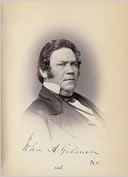
North Carolina Unionist Fears Collision at Charleston Harbor
On April 12, 1861, North Carolina Unionist John A. Gilmer wrote to Lincoln’s Secretary of State, William Seward stating:
“I am so deeply distressed that my heart seems to melt within me, if what I hear is true that we are to have
fighting at Sumter or Pickens, it is what the disunionists have most courted, and I seriously apprehend that it will
instantly drive the whole South into secession.”
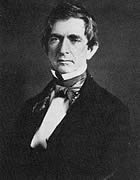
Secretary of State William Seward Ponders the Result of Coercion:
“The question submitted to us, then, practically, is: Supposing it to be possible to reinforce and supply Fort Sumter.
Is it wise to attempt it, instead of withdrawing the garrison? The most that could be done by any means now in our
hands would be to throw two hundred and fifty to four hundred troops into the garrison, with provisions for
supplying it five or six months.
In this active and enlightened country, in this season of excitement, with a daily press, daily mails, and
an incessantly operating telegraph, the design to reinforce and supply the garrison must become known to
the opposite party in Charleston as soon at least as preparation for it should begin. The garrison then would
almost certainly fall by assault before the expedition could reach the harbor of Charleston; suppose it to be
overpowered and destroyed, is that new outrage to be avenged, or are we then to return to our attitude of
immobility? Moreover in that event, what becomes of the garrison?
I suppose the expedition successful. We have then a garrison at Fort Sumter that could defy assault
for six months. What is it to do then? Is it to make war by opening its batteries and attempting to
demolish the defences of the Carolinians? Can it demolish them if it tries? If it cannot, what is the
advantage we shall have gained? If it can, how will it serve to check or prevent disunion?
In either case, it seems to me that we have inaugurated a civil war by our own act, without an adequate
object, which after reunion will be hopeless, at least under this administration, or in any other way than by
a popular disavowal both of the war and the administration which unnecessarily commenced it.
Fraternity is the element if union; war is the element of disunion.
Fraternity, if practiced by this administration, will rescue the Union from all its dangers. If this
administration, on the other hand, take up the sword, then an opposite party will offer the olive branch,
and will, as it ought, profit by the restoration of peace and union.”
(Life of William H. Seward, Frederic Bancroft, Volume II, Harper & Brothers, 1900, pp. 99-100)
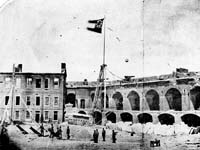
Fort Sumter on South Carolina's Sovereign Soil:
“This claim of property “belonging to the Government” rested on a very weak foundation, as a brief history
of the terms on which the United States acquired their title to it will make clear.
The States conferred upon the Congress the power “to exercise exclusive legislation in all cases whatsoever…
over all the places purchased by the consent of the legislatures of the State in which the same shall be, for the
erection of forts, magazines, arsenals, dockyards, and other needful buildings.” While Mr. Jefferson was
Secretary of State, he wrote to the authorities of South Carolina, and advised that her Legislature consent for
the Congress to purchase certain lands. This was done, but exclusive jurisdiction was denied.
The act was passed December 12, 1795 (House Ex. Doc., Number 67, 2nd Session, 23d Congress)
“to enable the United States to purchase a quantity of land in this State, not exceeding two thousand acres,
for arsenals and magazines.” And it provided, “that the said land, when purchased, and every person and officer
residing or employed thereon, whether in the service of the United States or not, shall be subject and liable to the
government of this State, and the jurisdiction, laws and authority thereof in the same manner as if this act had never
been passed; and that the United States shall exercise no more authority or power within the limits of the said land,
than they might have done pervious to the passing of this act, or than may be necessary for the building, repairing,
internal government of the arsenals and magazines thereon to be erected, and the regulation and management of
the same, and of the officers and persons by them to be employed in or about the same.”
But there was a proviso that the land should not be taxed by the State.
But this act did not transfer from the State her title to the forts and other defensive works in Charleston Harbor,
which she built during the Revolution. The transfer was made by an act passed in 1805, to which the following
proviso was added:
“That, if the United States shall not, within three years from the passing of this act…repair the fortifications as
may be deemed most expedient, etc., on the same, and keep a garrison or garrisons therein; in such case this
grant or cession shall be void and of no effect.”
This proviso was disregarded by the United States, the defensive works, including Fort Moultrie, were
neglected for years, and Fort Sumter was not commenced till 1829. According to all the laws of justice,
therefore, the title to the property reverted to the State, and the repairing and building were carried on solely
by the sufferance of the State. Thus it is clear to anybody who respects the laws governing property titles
that the United States occupied the defensive works in the harbor of Charleston without any legal rights of
ownership; and since the money spent in building came out of the pockets of the people of all the States, it
can not be disputed that whatever equitable rights were acquired belonged to the seceded States as well as
to the others. And it is equally clear that South Carolina never surrendered her sovereignty over the
sites of the forts and other defensive works.”
(Note: Neither South Carolina nor any other State was paid anything out of the Federal Treasury to reimburse
her for her expenses incurred in erecting defensive works in her harbors during the Revolution, nor for
cessions of State lands.—See Act of March 20, 1794)
(The Case of the South Against the North, pp. 286-288)
Sources & Bibliography
Land of the Golden River, Vol. II, Lewis P. Hall, Hall's Enterprises, 1980
The Case of the South Against the North, B.F. Grady, Edwards & Broughton, 1899
Life of William H. Seward, Frederic Bancroft, Volume II, Harper & Brothers,1900
North Against South, The American Illiad, 1848-1877, Ludwell H. Johnson, Foundation for American Education, 1993
Copyright 2011, North Carolina War Between the States Sesquicentennial Commission